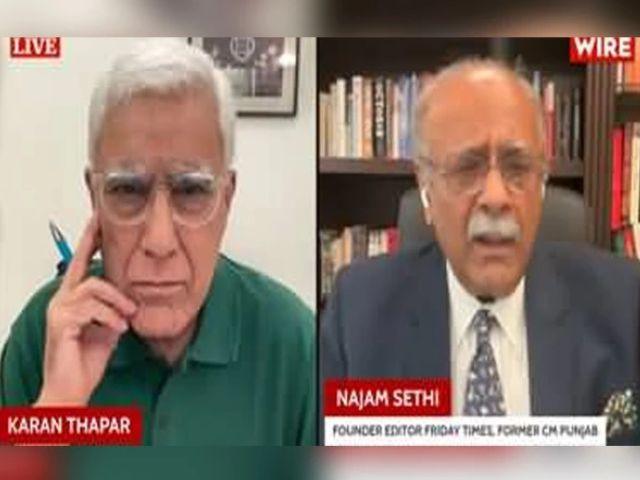The prominent Pakistani journalist and political analyst Najam Sethi, in an interview with senior Indian journalist Karan Thapar, has explained Pakistan’s nuclear doctrine that Islamabad’s policy is based on the belief that if the country were to face existential threat from India, it would be justified by starting a nuclear strike and accepting the subsequent consequences.
Sethi emphasized that this attitude is the primary reason why Pakistan has consistently refused to sign the treaty without first use.
The prominent Pakistani journalist and political analyst Najam Sethi has warned that if India is trying to block Pakistan’s water supply or performing actions with financial choking, Islamabad may resort to using nuclear weapons in self -defense.
During the TV interview, where the two senion journalists turned to escalating tensions between the two neighbors after the recent Pahagam attack, Sethi’s accusations against Pakistan described as “baseless” and felt the incident a false flag operation.
He claimed that powerful elements within India’s security and intelligence institution or “the deep state” were likely to be involved.
“There is still no response about failure in Indian security forces and intelligence agencies to prevent the incident,” he said.
He noted that Pakistani authorities have responded calmly and responsibly without having blemishing tension or issuing of non -verified counterclaim. “Unlike Indian media that avoids asking tough questions about its leadership, Pakistani media and officials have maintained a restrained attitude,” Sethi said. “If there is any credible evidence, it must be presented to the international community, not simply sent domestic to political mileage.”
Former Deputy Minister of Deputy Minister of Punjab added that the public atmosphere in Pakistan remains largely unaffected by the Indian claims in which most treat the allegations as exaggerated or intensely.
However, he emphasized that the Pakistani government is seeing the situation seriously and is preparing for any eventuality.
Sethi said Pakistan’s nuclear doctrine addresses questions about nuclear threats, and includes defensive use of weapons under existential threats. “As one of our former prime ministers said, we did not build nuclear weapons to celebrate religious festivals,” he noted. “If India crosses a red line – by trying to block water, invading invading Pakistani territory or financially strangle Karachi – a nuclear reaction to our own soil cannot be excluded.”
Sethi also highlighted the regional dimensions of the crisis and said that China, with its growing investments and strategic interests in Pakistan, is looking closely at the development. “This is no longer just a bilateral case between India and Pakistan,” he said. “China’s commitment, through both economic investment and military cooperation, means that the consequences of any escalation can extend far beyond South Asia.”
He concluded by calling on India to agree on an independent international investigation, possibly involved the United States or other global stakeholders, to resolve the case transparent and avoid further instability.



